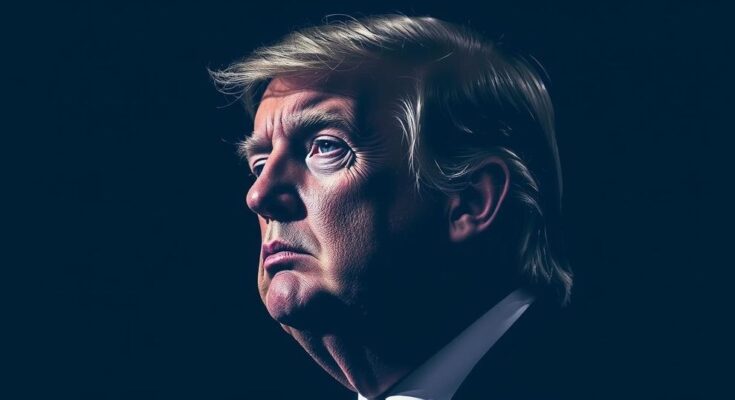This article discusses the dire implications of a potential second Trump presidency, likening the fragility of American democracy to a precariously stacked Jenga tower. It draws parallels to other nations’ authoritarian shifts, highlighting systematic efforts to undermine democratic institutions and replace them with personal loyalty. The article emphasizes the urgency for voters to understand these risks as foundational to their political decision-making, asserting that failures to address these concerns could result in a profound collapse of democratic governance.
In the game of Jenga, players alternate between removing wooden blocks from a precarious tower and reinserting them atop. With each block removed, the foundation grows more unstable; conversely, adding to the top amplifies the imbalance until a collapse occurs. This analogy aptly reflects the implications of the 2024 election for American democracy. The existing framework appears fragile, teetering on the brink of total failure, with dire consequences for its inhabitants. We are currently witnessing a trend where formerly stable democracies are faltering and, in some instances, disintegrating. Hungary serves as a poignant example; once heralded as a democratic exemplar post-Communism, it now stands as the sole autocracy within the European Union. This decline was not incidental, but rather orchestrated by Prime Minister Viktor Orbán, who gradually consolidated state power across various sectors, transforming democratic institutions into instruments of his regime. Orbán, whom former President Donald Trump has openly supported, effectively demonstrated a strategy for transitioning from democracy to authoritarianism—a blueprint that has inspired leaders worldwide. A pressing concern for the upcoming election lies in whether voters will permit Trump to pursue a similar trajectory in the United States. The strategies proposed in Trump’s policy documents, including Project 2025, outline a systematic approach to supplanting democratic governance with a regime reflecting his personal agenda. For instance, reviving the unexecuted Schedule F order would enable the dismissal of a significant portion of the civil service, marking a pivotal move toward undermining the foundational governance that serves millions. Contemporary democratic declines are less about overtly abolishing elections and more about stealthily eroding the structures that enable them. This necessitates complete control over state apparatus and bureaucratic functions, ensuring that the right individuals are strategically positioned to obstruct any challenges to an autocratic consolidation. Trump’s administration has already signaled ambitions to undermine local election officials and manipulate regulatory frameworks as instruments of power. Even with a potential for resistance from the judiciary, the risks associated with a second Trump presidency are substantial. With explicit plans for autocratic governance and recent judicial precedents granting him immunity, his return poses an existential threat to American democracy. The roots of this crisis can be traced to America’s enduring struggle with issues surrounding race and identity politics, intensified by a sense of cultural displacement following Barack Obama’s presidency. Trump capitalized on this discontent, intertwining it with an aggressive reactionary agenda which deepened societal divides. By 2016, he had transformed the political landscape, compelling partisanship that ultimately undermined trust in democratic institutions. Critics of Trump often assert that democracy withstood his initial term, yet this overlooks the profound damage inflicted during that period. Many indicators suggest that a second term would be even more perilous, emboldened by lessons learned from past governance missteps. Unlike before, Trump would likely approach governance with calculated intent rather than erratic impulse. Should he return to power, Trump could indeed manipulate electoral dynamics further in favor of the GOP while aggressively dismantling media integrity and governmental functionality. The potential for catastrophic outcomes, as witnessed previously, remains imminent. Yet even in optimistic scenarios, the long-lasting structural damage to American democracy could be irrevocable. A sustainable democracy is dependent upon efficient governance, cultivating public trust—a foundation that, if compromised, leads to perpetual instability and conflict. As John Rawls articulated, the gradual establishment of trust in democratic processes fosters cooperation among citizens and reinforces the legitimacy of governance. In stark contrast, a second Trump term could catalyze a detrimental cycle wherein distrust and dysfunction prevail. The fundamental question remains: how much more can the lifespan of American democracy endure before it succumbs under the weight of such concentrated misrule?
The backdrop of this analysis centers on the potential ramifications of a reinvigorated Trump presidency, particularly as it relates to the current state of democracy in the United States. The comparison with Jenga aptly illustrates the precariousness of American democratic institutions, suggesting a susceptibility to systemic breakdown under further strain. The historical precedence of democratic regression in other nations, especially Hungary under Viktor Orbán, highlights a methodical approach to consolidating power and dismantling democratic structures which serves as an alarming warning for the United States.
In conclusion, the potential for a second Trump administration poses an imminent threat to the stability of American democracy. The strategies outlined and historical precedents established warrant a serious examination of the risks associated with allowing a leader eager to dismantle democratic norms to seek office again. The stakes transcend traditional political competition and delve into the very essence of governance and societal cohesion. A collective vigilance among the electorate is imperative to safeguard the foundational principles that sustain democracy.
Original Source: www.vox.com




